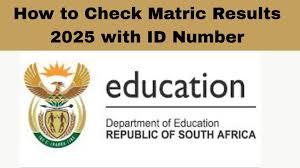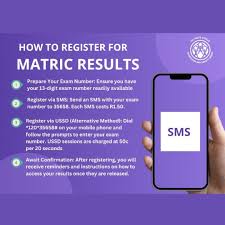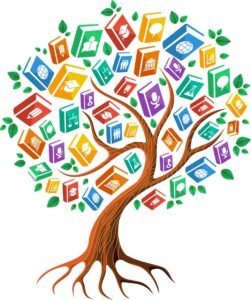1. Introduction
In the final stretch of high school, Grade 12 learners in South Africa face a pivotal academic challenge: the National Senior Certificate (NSC) examinations. For those enrolled in Mathematical Literacy, the path to success is lined with real-world application, logical thinking, and a deep understanding of everyday numbers. Unlike pure Mathematics, Mathematical Literacy prioritizes applying maths to daily life situations—budgets, graphs, timetables, and more. But, like all high-stakes subjects, preparation is best anchored not just in textbooks, but also in past papers.
This comprehensive post explores Mathematical Literacy Grade 12 past papers: how to use them, where to find them, their structure, and crucial advice for paving your way to not just a pass, but proficiency for life. We’ll dig into province-by-province and year-by-year organization, highlight study notes, and offer a human, motivating perspective on why Mathematical Literacy matters—far beyond the exam room.
2. The Real-World Value of Mathematical Literacy
Before we dive into past papers, let’s pause: why is Mathematical Literacy so important?
Mathematical Literacy is about making sense of numbers in all aspects of life. It’s the tool that empowers you to:
- Manage Money: Calculate change, understand interest rates, budgets, and savings.
- Interpret Data: Read public transport schedules, understand weather charts, analyze political poll results.
- Solve Daily Problems: Work out cellphone tariffs, grocery discounts, and even interpret stats in news articles.
- Make Informed Decisions: Vote smartly, avoid scams, and effectively plan for your future.
In a country as diverse and rapidly developing as South Africa, these skills aren’t just academic—they form the bedrock for active citizenry and personal independence.
3. Why Past Papers Are a Key to Success
Why practice past papers? Isn’t coursework enough? In truth, past papers bridge the gap between classroom learning and exam performance. Here’s how:
- Familiarity: Each exam has a specific structure. Practicing old papers helps you see the patterns—multiple choice, short questions, longer application problems.
- Time Management: Learning to pace yourself is essential. Past papers are the real thing—no surprises.
- Content Mastery: You get a realistic sense of what’s repeatedly asked, which areas are emphasized, and how marks are allocated.
- Confidence: Practice creates competence—and with competence comes confidence. Writing “real” papers reduces anxiety and boosts self-belief.
- Insight: Memos allow you to self-mark, learn from mistakes, and understand what examiners are looking for.
4. How to Use Grade 12 Mathematical Literacy Past Papers
Step-by-Step for Effective Practice:
- Start Early: Begin in Term 1 and ramp up as the year progresses.
- Simulate Exam Conditions: Use two hours (Paper 1) or three hours (Paper 2), no notes, silent room.
- Self-Mark: Be brutally honest. Use official memos—these are the standards.
- Reflect: Note down which topics you repeatedly make errors on. Revise these first.
- Cross-Reference: Don’t limit yourself to one province—spread your wings. Each region may emphasize different contexts or question types.
Best Time to Use Past Papers:
- Term 1-2: Begin with March and June tests. Focus on understanding and foundation.
- Term 3: Use September/Trial exams for simulated NSC preparation.
- Term 4: Final month—hammer the NSC November papers, and supplement with provincial mocks for wider exposure.
5. A Map of Past Papers: By Year, Province, and Paper
Let’s organize the gigantic list of resources you posted for easy navigation:
2025 Preview:
Anticipated resources—keep an eye out for ATP (Annual Teaching Plan) and exemplars for practice.
- KZN ATP: Curriculum plan, gives insights into focus areas and pacing for the year.
- EXEMPLAR P1 and P2: These are sample papers issued for extra practice; often set at or just above NSC level.
- KZN March QP & Memo, EC Joe March, LP and MP March Papers: Fresh content reflecting current trends.
- Invest T1, NSC May/June P1 and P2, GP June Papers: These track changing curriculum weightings.
- Advert: Sometimes includes memos and marking guidelines.
2024:
To assist you in preparing for your Grade 12 Mathematical Literacy exams, here are direct links to past papers, memos, and study guides for the years 2024 and 2025. These resources are invaluable for understanding exam formats, practicing problem-solving, and enhancing your overall performance.
2024 Mathematical Literacy Grade 12 Resources:
- March 2024 Exam Papers:
- Limpopo Province (LP) March Paper:
- Gauteng Province (GP) March Assignment:
- June 2024 Exam Papers:
- Gauteng Province (GP) June Papers:
- Northern Cape (NC) June Papers:
- Eastern Cape (EC) June Papers:
- Free State (FS) June Papers:
- Mpumalanga (MP) June Papers:
- September 2024 Exam Papers:
- Limpopo Province (LP) September Papers:
- Free State (FS) September Papers:
- Gauteng Province (GP) September Papers:
- Eastern Cape (EC) September Papers:
- KwaZulu-Natal (KZN) September Papers:
- Northern Cape (NC) September Papers:
- North West (NW) September Papers:
- Mpumalanga (MP) September Papers:
- November 2024 NSC Exam Papers:
- Paper 1:
- Paper 2:
2025 Mathematical Literacy Grade 12 Resources:
As of now, the 2025 exam papers and memos have not been released. However, you can access the 2025 Grade 12 Tips for Success guide, which provides valuable insights and strategies for your studies:
Additional Study Guides and Resources:
To further enhance your preparation, consider utilizing the following study guides:
- Mathematical Literacy Study Guides:
- Western Cape Education Department Resources:
- Mathematical Literacy Support:
Tips for Effective Use of These Resources:
- Consistent Practice: Regularly work through past papers to familiarize yourself with the exam format and question styles.
- Timed Sessions: Simulate exam conditions by timing yourself while attempting the papers to improve time management.
- Review and Reflect: After completing each paper, thoroughly review your answers using the provided memos to understand mistakes and learn the correct approaches.
- Focus on Weak Areas: Identify topics where you struggle and allocate additional study time to those areas.
- Utilize Study Guides: Complement your practice with study guides to reinforce concepts and gain different perspectives on problem-solving.
- KZN, LP, EC, MP, FS, NC, GP, NW: March and June papers from every province, both Paper 1 and Paper 2.
- September (SEPT) Examinations: Each province’s mid-to-late year exam, plus memoranda.
- NSC May/June and November P1 & P2: Central, must-do papers for everyone.
- Easy to Score Marks: Special guides or tip sheets circulating to help students pick up “easier” points.
2023 and prior (down to 2016):
For every year:
- MARCH: Quarter 1 check-in, foundation testing.
- JUNE: Quarter 2, more detailed, covers content up to mid-year.
- SEPT: Prelims and mock finals. September exams are crucial for pacing, exposing exam “traps” and time management.
- NSC NOV: The gold standard—every question, format, and memo reflects the REAL dealt-for-marks scenario.
- Provincial Trials: Especially useful for alternative contexts and unforeseen question types.
- Study Notes & Addenda: Include Afrikaans and English notes, addenda for data handling and real contexts, and multiple memos for thorough understanding.
Types of Papers:
- Paper 1 (P1): Foundational and routine processes.
- Paper 2 (P2): Focus on application—data, graphs, scenarios, finance, and integrated reasoning.
6. Working With Memos and Study Notes
Memos are your greatest feedback tool. These aren’t just answer keys—they give step-by-step guidelines on allocating marks, common errors, and model explanations. In Mathematical Literacy, where working out is often as important as the answer, following the memo’s logic is as vital as reaching the solution itself.
Best practices:
- Mark your papers immediately after attempting.
- Read the model answers out loud—this helps you internalize reasoning.
- Compare your steps to the model; re-do mistakes, not just note them.
- Use study notes and addenda to brush up on theory before and after each practice.
7. The Human Nature of Mathematical Literacy
Why It’s More Than Just an Exam Subject
Mathematical Literacy is, at its heart, a people’s maths. Every worksheet, every past paper, every scenario is connected to real life—the life you’re living, and the one you’ll navigate beyond school.
Think about it:
- Reading a payslip: How do taxes work? Is that deduction right?
- Calculating home loan interest: How much will you really pay for that house in 30 years?
- Budgeting for food and transport: Can you survive on a first job’s salary?
- Understanding a government budget or statistics on unemployment.
Every mathematical literacy paper is a practice run for the adult world. That is human nature at its essence: using logic, numbers, and reasoning to make life decisions, to protect yourself from exploitation, to thrive in a society where information is power.
The Emotional Side: Progress Over Perfection
Every learner has strengths and weaknesses. Mathematical Literacy respects that—it’s designed to be accessible, relatable, and empowering. The real value isn’t scoring 100%; it’s walking away able to read a contract, challenge a scam, or plan a dream holiday down to the last cent.
So when frustration hits, remember: the growth you’re after is in your confidence, your decision-making, and your ability to function independently in society. Marks are just a measure—not the meaning.
8. Tips for Learners: Getting the Most From Past Papers
- Practice With Purpose: Don’t treat papers as “just work.” Each one simulates a future scenario.
- Time Yourself: Don’t just “finish” the paper—do it with a clock ticking, just as in June or November.
- Ask for Help: Struggling with budgeting or stats? Your classmates, teachers, YouTube, and online forums are resources.
- Alternate Languages: Switch between Afrikaans and English versions where possible—sometimes translation clarifies difficult questions.
- Group Work: Try some sessions with friends; debate answers; defend your reasoning aloud.
9. Advice for Parents and Educators
- Parents: Encourage your child to practice past papers. Offer to mark with memos, discuss daily situations involving numbers.
- Educators: Structure class tests and assignments around common past paper themes. Use memos as remedial tools, not just marking guides.
10. Where to Find Mathematical Literacy Past Papers
- Education Department Portals: The Department of Basic Education, provincial sites, and school LMS platforms.
- WhatsApp and Facebook Groups: Peer networks often circulate less-accessible papers from rural or urban schools.
- School Libraries: Hard copies, bound by year and paper.
- Ask Teachers: Sometimes, the best older resources are hidden in staff rooms!
Example Links:
11. Toolbox: Engaging With Study Notes and Addenda
The supplied study notes, especially in dual language format, are priceless:
- Condensed content: Perfect for quick review sessions.
- Addenda: Particularly important for questions involving tables, graphs, or extended reading materials.
Download and print addenda before starting a paper—they’re usually required for interpreting large tables or graphs.
12. Conclusion: The Human Factor in Exam Success
Mathematical Literacy is not about rote learning; it’s about preparing for living. Past papers are your dress rehearsals—not just for the exam, but for life’s unpredictable scenarios:
- Will you get the right change at a taxi rank?
- Can you spot a “shady” loan interest calculation?
- Do you notice errors in your payslip?
- Will you understand and scrutinize community statistics or election polling?
The only way to become fluent and fearless is practice. Past papers, memos, and study notes—these are your tools. But your best weapons? Curiosity, commitment, and recognizing the fundamental human nature of your subject.
Every question you solve is a step towards a more independent, savvy, and empowered future. So download those papers, grab some memo sheets, and practice becoming the very best, most confident you!




